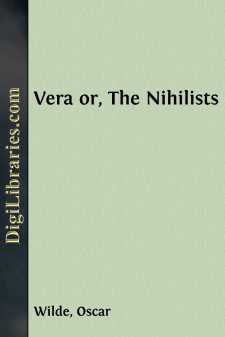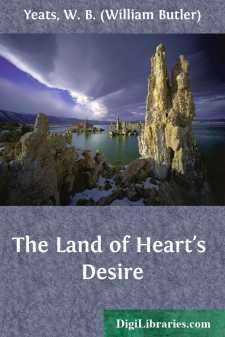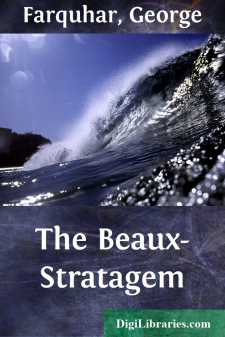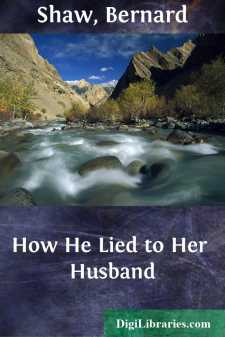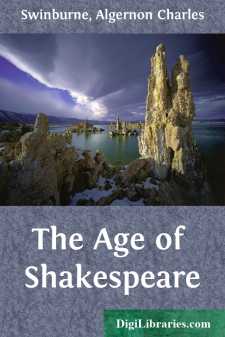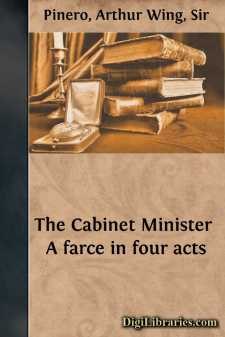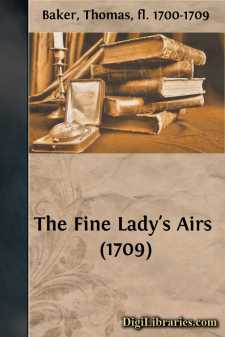Drama
- American 43
- Ancient, Classical & Medieval 45
- Asian 7
- Caribbean & Latin American 2
- Continental European 50
- English, Irish, Scottish, Welsh
- General 105
- Middle Eastern 1
- Religious & Liturgical 1
- Shakespeare 1
English, Irish, Scottish, Welsh Books
Sort by:
by:
Robert Dodsley
PREFACE. After the lapse of about half a century since the issue of the last edition of Dodsley's Select Collection of Old Plays,[1] and the admittance of that work into the honourable rank of scarce and dear books, it seemed a desirable thing to attempt, with such additional improvements as might be practicable or expedient, a revival of a publication which has been a favourite with the lovers of...
more...
INTRODUCTION Encouraged by the reviewer who announced that the Introduction to my previous collection of plays was the best part of the book, I venture to introduce this collection in a similar manner. But I shall be careful not to overdo it this time, in the hope that I may win from my critic some such tribute as, "Mr. Milne has certainly improved as a dramatist, in that his plays are now slightly...
more...
by:
Oscar Wilde
PROLOGUE. Scene.—A Russian Inn. Large door opening on snowy landscape at back of stage. Peter Sabouroff and Michael. Peter (warming his hands at a stove). Has Vera not come back yet, Michael? Mich. No, Father Peter, not yet; 'tis a good three miles to the post office, and she has to milk the cows besides, and that dun one is a rare plaguey creature for a wench to handle. Peter. Why didn't...
more...
THE LAND OF HEART'S DESIRE SCENE.—A room with a hearth on the floor in the middle of a deep alcove to the Right. There are benches in the alcove and a table; and a crucifix on the wall. The alcove is full of a glow of light from the fire. There is an open door facing the audience to the Left, and to the left of this a bench. Through the door one can see the forest. It is night, but the moon or a...
more...
by:
George Farquhar
PREFACE The Author. 'It is surprising,' says Mr. Percy Fitzgerald, 'how much English Comedy owes to Irishmen.' Nearly fifty years ago Calcraft enumerated eighty-seven Irish dramatists in a by no means exhaustive list, including Congreve, Southerne, Steele, Kelly, Macklin, and Farquhar—the really Irish representative amongst the dramatists of the Restoration, the true prototype of...
more...
by:
Bernard Shaw
PROLOGUE The tableau curtains are closed. An English archdeacon comes through them in a condition of extreme irritation. He speaks through the curtains to someone behind them. THE ARCHDEACON. Once for all, Ermyntrude, I cannot afford to maintain you in your present extravagance. [He goes to a flight of steps leading to the stalls and sits down disconsolately on the top step. A fashionably dressed lady...
more...
by:
Bernard Shaw
PREFACE Like many other works of mine, this playlet is a piece d'occasion. In 1905 it happened that Mr Arnold Daly, who was then playing the part of Napoleon in The Man of Destiny in New York, found that whilst the play was too long to take a secondary place in the evening's performance, it was too short to suffice by itself. I therefore took advantage of four days continuous rain during a...
more...
CHRISTOPHER MARLOWE The first great English poet was the father of English tragedy and the creator of English blank verse. Chaucer and Spenser were great writers and great men: they shared between them every gift which goes to the making of a poet except the one which alone can make a poet, in the proper sense of the word, great. Neither pathos nor humor nor fancy nor invention will suffice for that:...
more...
THE FIRST ACT. Debt The scene is a conservatory built and decorated in Moorish style, in the house of the Rt. Hon. Sir Julian Twombley, M.P., Chesterfield Gardens, London. A fountain is playing, and tall palms lend their simple elegance to the elaborate Algerian magnificence of the place. The drawing-rooms are just beyond the curtained entrances. It is a May afternoon. Brooke Twombley, a good-looking...
more...
by:
Thomas Baker
INTRODUCTION In the first decade of the eighteenth century, with comedy in train to be altered out of recognition to please the reformers and the ladies, one of the two talented writers who attempted to keep the comic muse alive in something like her "Restoration" form was Thomas Baker.[1] Of Baker's four plays which reached the stage, none has been reprinted since the eighteenth century...
more...




